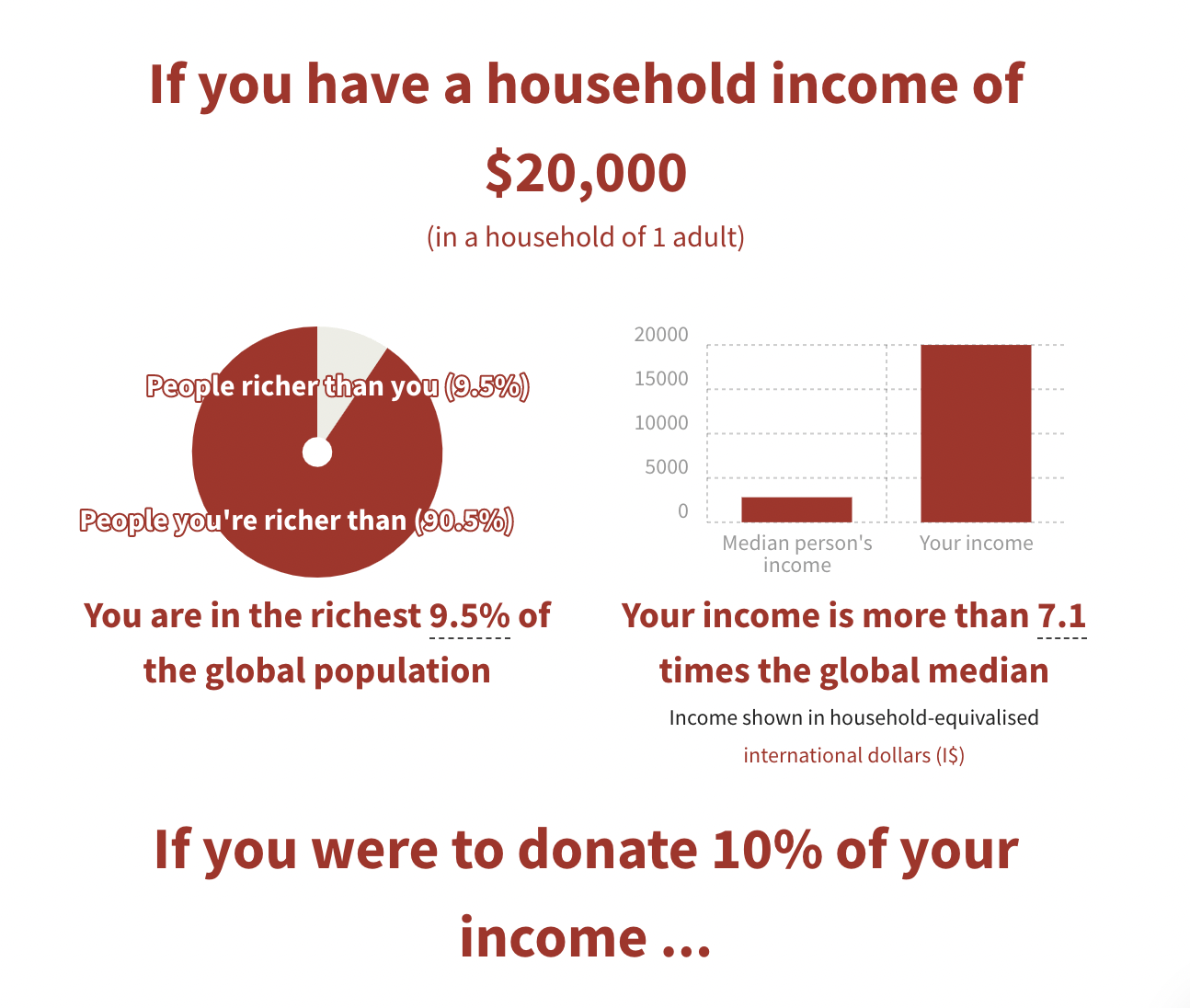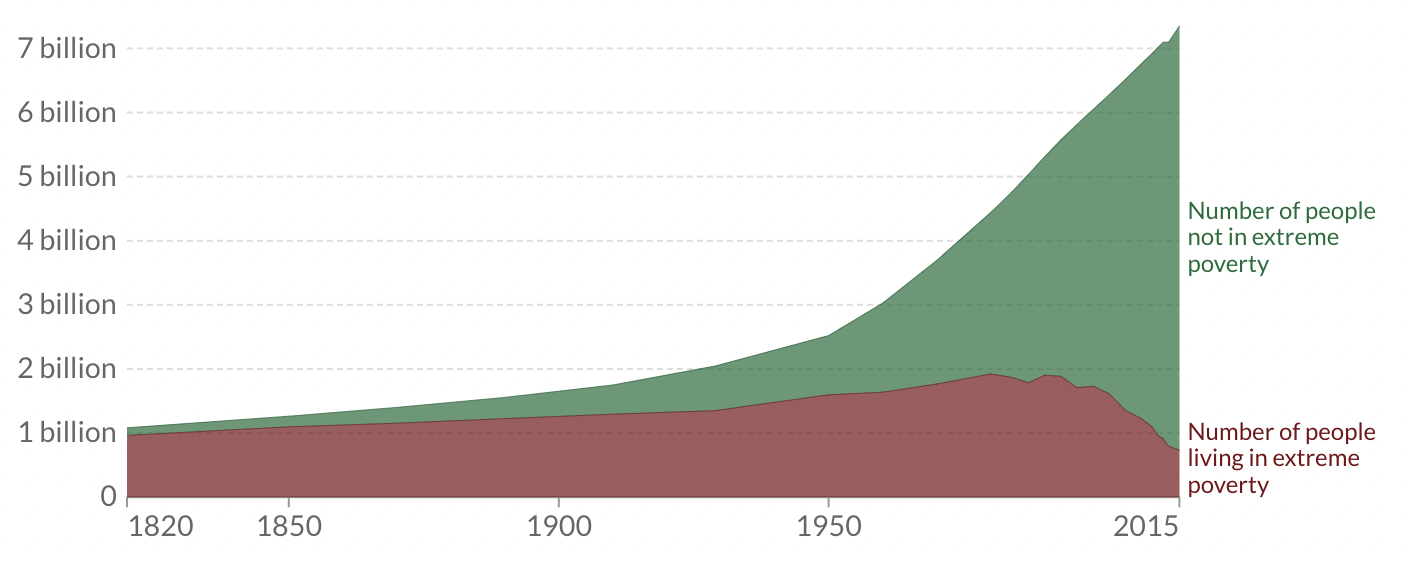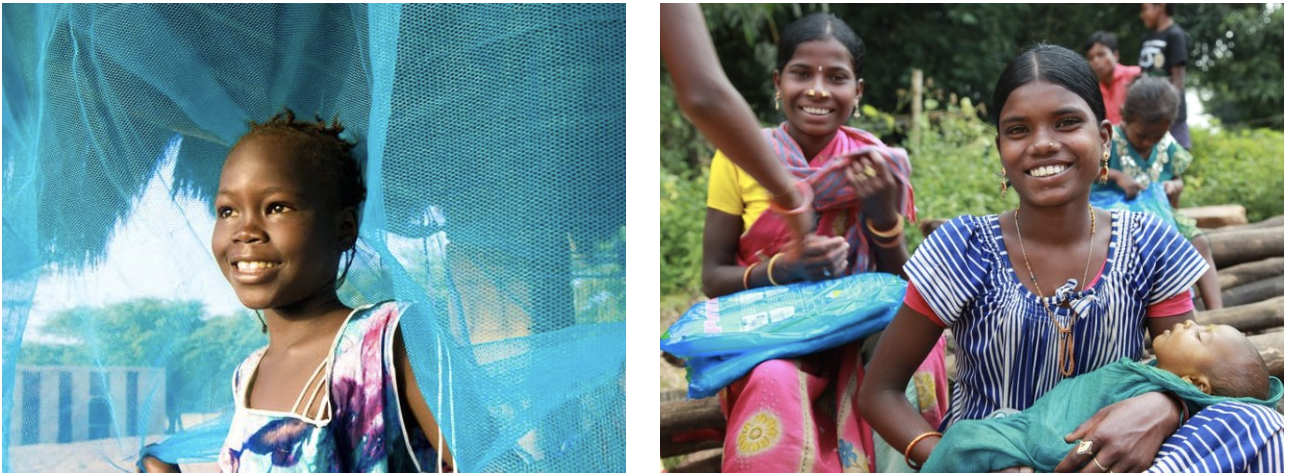As of right now, all of the charities that our pledges support are focused on alleviating the suffering of those living in extreme poverty. So what constitutes 'extreme' poverty, and what can we do about it?
Contents:
Key resources and related pages
What is extreme poverty?
Extreme poverty is defined as living on less than $1.90 per day. The world's median annual income is $2,920, adjusted for cost of living. Half of the world lives on less than this for the entire year, and yet, most of the people you know will probably earn more than $20,000.

Why is this important?
Currently there are ~700 million people around the world that fall into this category. With only $1.90 a day, people are forced to make impossible choices for themselves and their families regarding healthcare, food, water, education and housing.
As a result, ~14,500 children under the age of five die every year from completely preventable causes, such as malaria, tuberculosis, diarrhea, or malnutrition. So, extreme poverty is important as a cause area because of the huge scale of this problem.

The good news is that extreme poverty is decreasing globally, and more than one billion people have moved above the extreme poverty line since 1999. However, there are still millions of people dying of completely preventable, poverty-related illnesses, and the economic damage caused by coronavirus pushed nearly 100 million people into extreme poverty.
What can we do about this?
Extreme poverty is a great cause area because the opportunities for evidence-based and cost-effective intervention are plentiful. Additionally, many of the illnesses that people suffer from are very easily preventable and do not require expensive medical technology (i.e. insecticide-treated bed nets to prevent malaria, or improving vaccine access for children).

Most of us can live comfortably retaining 99% of our annual income. The other 1% that we donate could mean the difference between life and death for thousands of people living in extreme poverty.
- You can calculate the exact impact of your own donations here!